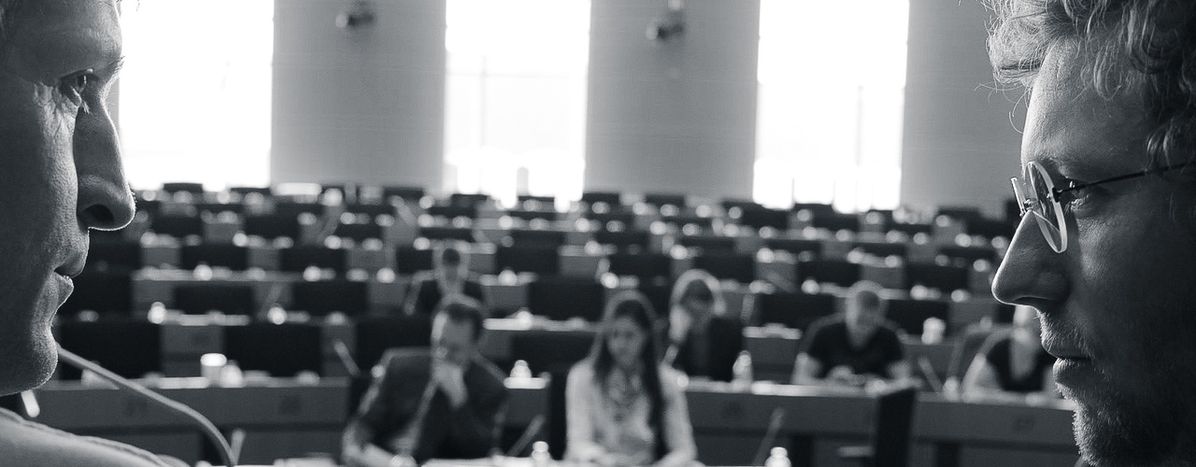
“Democracy” : lifting the veil on European institutions
Published on
Translation by:
Lara BullensA black and white documentary that delves into the legal procedures of European institutions is not exactly the sexiest movie pitch ever made. Nonetheless, Swiss director David Bernet took on the daunting task, creating a beautiful and wistful movie on the mysteries of European power.
It may well be the first film of its kind in the history of the European Union. On 14 November, David Bernet presented Democracy at the Augenblick festival in Strasbourg. The film had just come out about a year earlier in Germany and was a huge success.
A cross between Snowden and Black Mirror
The two politicians who set the project forth were Viviane Reding and Philipp Albrecht, both Members of the European Parliament. In 2012, the dynamic duo fought long and hard so that the European legislation would include the protection of online personal information to their agenda. With a team of advisors, political opponents, lobbyists and civil rights defendants at their side, Brussels quickly became the main stage of an intense power struggle. The project quickly started sinking under the weight of various tech companies. According to the two protagonists, the lobbyists had never before shown so much dedication and the legislative proposition hit a record of over 4000 filed amendments. In the end it was Edward Snowden’s bold stunt that exposed the degree of mass surveillance in the summer of 2013, propelling Albrecht’s venture to success. The proposition was adopted by the European Parliament in March 2014, and that is where the film ended. Naturally, it took another two years for the negotiations between the Parliament, the Council of the EU and the Commission to be finalized. It was only in April 2015 that the General Data Protection Regulation was set in stone.
With the release of the third season of Black Mirror and Oliver Stone’s biopic of Snowden, it is safe to say that we are knee-deep in an era of data paranoia. But don’t expect to find anything of this sort in Bernet’s documentary. It mostly covers the decisions being taken backstage in Brussels and criticizes today’s democracy, as mentioned in the title itself. “My goal was simply to open doors, not to be hostile to anyone. I was interested in the various aspects that shape a legislative procedure,” the director said while in Strasbourg. Bernet manages to add a sense of warmth to an otherwise very cold institutional setting. His choice of using black and white, although daring, allows the offices to be drained of their sad colours to be masked. But the film’s warmth comes from its characters, whose personalities are paradoxically presented in full colour. There is the young and promising Albrecht leading the whole project; superintendent Reding who gets entangled (albeit calmly) in the issue; Pietro Balboni, a young lawyer specialized in e-commerce; and Katarznya Szymielewicz and Joe McNamee, two civil rights defendants convinced by the cause. The only people missing are those running and representing multinational companies who, in any case, wouldn’t be thrilled to be in such a documentary, but the whole procedure is meticulously humanized by Bernet.
“Brussels is at the forefront”
At a time where the European Union is seen as a useless and overly complex series of institutions, Democracy feels timely and important. From the procedure that lasted over four years to the deputies that got lost in the hallways of the Parliament, the complexity of the EU is a reality that Bernet was not afraid to expose. For the sake of transparency, he managed to shine a light on how decisions are made in Brussels without falling into the hands of cynicism. As it happens, the decision to portray the EU in this light is most relevant in an age of digital revolution. The mere fact that European citizens “cannot control their information, nor react to what’s being done,” means Brussels is at the forefront of power.
Democracy trailer.
___
This article has been written by cafébabel Strasbourg.
Translated from « Democracy » : le strip-tease des institutions européennes



